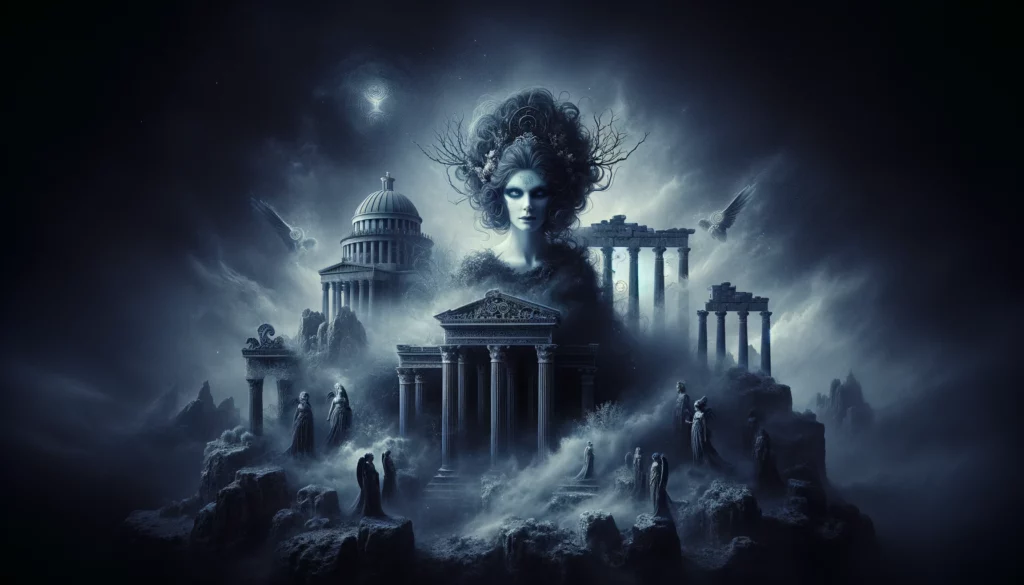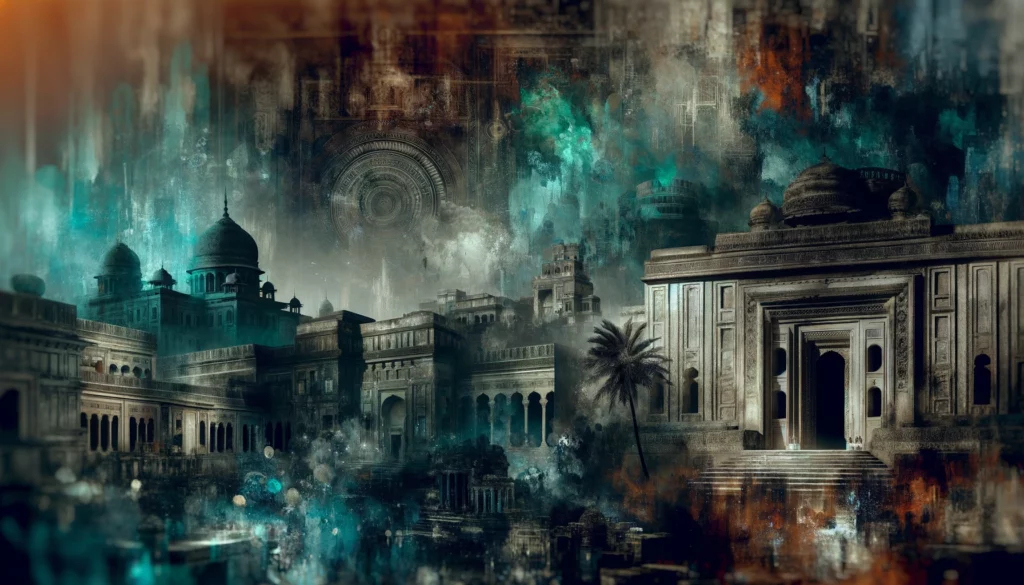Daimones or Goddesses of the Personification of Insanity, Madness, and Crazed Frenzy.
When we hear the word “mania”, most of us think that it means crazed or to act in a frenzy. How did this word work its way into our vocabularies? It all goes back to the Greek goddesses or more commonly the divinity spirits of Mania or Maniae. In later Roman and Etruscan mythology, Mania or ‘Manea’ takes on a slightly different role, as the goddess of the dead, spirits and chaos. In Greek, Mania is sometimes referred to in the singular, but also often as a plural for the spirits personifying insanity, frenzy and madness.

The Role of Mania / The Maniae
The Maniae are often associated with the dead, the crazed, and the mentally ill. The name, after all, means excessive excitement or craze. They are also associated with the Erinyes, fearsome goddesses of vengeance. The Erinyes are also sometimes referred to as The Furies.
Mania not only dealt with gods and goddesses, but she had a huge impact on humans as well. Many men wrote that Mania had a trigger finger that, just from one touch, would send them into a crazy, irrational fit. When animals would start foaming at the mouth or acting frenzied, the owners would either blame it on Lyssa (spirit of rage and rabies) or on Mania.
The Maniae were most likely children of Erebus and Nyx, though their exact line is not really stated anywhere firmly. Erebus is known as being the Titan of darkness and Nyx is known for being the Titaness of the night. Not too much is said about how Mania managed her home life except that her parents were always using negative feelings and emotions to express themselves. This could be the reason that Mania was filled with so much rage and negativity herself.
In later Roman mythology, Mania ruled the underworld for quite sometime along with the husband, Mantus.

Facts About The Maniae Goddesses/Daimones
- The Greek ‘Maniae’ are often considered spirits of madness, rather than a single deity, representing various aspects of insanity and irrational behavior.
- Unlike their Roman counterpart, the Greek ‘Maniae’ were less personalized and more abstract, embodying the concept of madness in a collective form.
- They were invoked in ancient Greek rituals aimed at averting or controlling madness, highlighting their dual role as both causes and potential cures for insanity.
- The ‘Maniae’ are sometimes depicted as followers or servants of Dionysus, the god of wine, ecstasy, and madness.
- In Greek mythology, the ‘Maniae’ are not traditionally associated with a specific mythological narrative. More often referenced in texts as embodying the state of madness.
- The ‘Maniae’ were believed to roam freely, affecting those they encountered with bouts of madness.
- The Roman Mania, had a more defined role in the underworld. The Greek ‘Maniae’ are more closely tied to the realm of the living and psychological states.
- The ‘Maniae’ can be seen as counterparts to the Moirai (Fates). Where the Moirai governed the destiny of humans, the ‘Maniae’ influenced their mental and emotional states.
- Their influence was not always seen as negative. In some contexts, the madness they brought could lead to prophetic insights or artistic inspiration. This is reflective of the complex Greek views on mental states.
- There is no specific festival or day dedicated to the ‘Maniae’ in Greek religion. This underscores their more abstract and pervasive role in Greek thought.
- The ‘Maniae’ were sometimes appealed to in curse tablets, where individuals sought to inflict madness upon their enemies. Demonstrating their role in ancient Greek magical practices.
- In contrast to the Roman Mania, who had a more structured mythological background, little is documented about the Greek ‘Maniae’ genealogy.
- ‘Maniae’ reflects the ancient Greek understanding of mental illness as being influenced by divine or supernatural forces. Rather than purely physical causes.
- Artistic representations of the ‘Maniae’ are rare. Their abstract nature made them difficult to personify.
- Philosophical texts occasionally reference the ‘Maniae’ in discussions of the mind and behavior. Indicating their role in early inquiries into psychology and the nature of madness.
Link/cite this page
If you use any of the content on this page in your own work, please use the code below to cite this page as the source of the content.
Link will appear as Mania / Maniae: https://greekgodsandgoddesses.net - Greek Gods & Goddesses, October 21, 2019